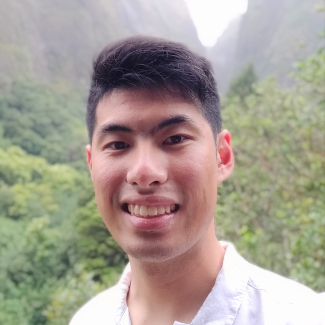Cao
Alec completed his undergraduate studies at UC Santa Barbara. He began in research working on a collaboration between Professors David Weld and Ania Jayich, constructing a UHV apparatus for studying surface decoherence of nitrogen vacancy centers. He then transitioned to the Weld lab’s ultracold lithium-7 apparatus, investigating transport dynamics and many-body chaos in Floquet lattice systems. After graduating, Alec spent a year at the University of Cambridge as a Churchill scholar in Professor Zoran Hadzibabic’s group; there he probed the properties of a uniform Bose polaron gas using potassium-39 trapped in an optical box. Alec is excited to join the strontium experiment and is looking forward to exploring applications of the platform in quantum metrology and simulation.



 The Physics Frontiers Centers (PFC) program supports university-based centers and institutes where the collective efforts of a larger group of individuals can enable transformational advances in the most promising research areas. The program is designed to foster major breakthroughs at the intellectual frontiers of physics by providing needed resources such as combinations of talents, skills, disciplines, and/or specialized infrastructure, not usually available to individual investigators or small groups, in an environment in which the collective efforts of the larger group can be shown to be seminal to promoting significant progress in the science and the education of students. PFCs also include creative, substantive activities aimed at enhancing education, broadening participation of traditionally underrepresented groups, and outreach to the scientific community and general public.
The Physics Frontiers Centers (PFC) program supports university-based centers and institutes where the collective efforts of a larger group of individuals can enable transformational advances in the most promising research areas. The program is designed to foster major breakthroughs at the intellectual frontiers of physics by providing needed resources such as combinations of talents, skills, disciplines, and/or specialized infrastructure, not usually available to individual investigators or small groups, in an environment in which the collective efforts of the larger group can be shown to be seminal to promoting significant progress in the science and the education of students. PFCs also include creative, substantive activities aimed at enhancing education, broadening participation of traditionally underrepresented groups, and outreach to the scientific community and general public.